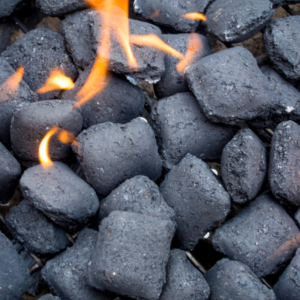
Charcoal, with its diverse uses from grilling to purifying water, is a staple for many households and industries. And when it comes to high-quality charcoal production, coconut shells are considered an excellent choice. Coconut shells, sourced from the outer layer of mature coconuts, possess unique characteristics that make them ideal for charcoal production. Let’s explore the qualities of coconut shells that make them suitable for charcoal production.
Hardness and Density
Coconut shells are known for their exceptional hardness and density, which make them ideal for charcoal production. The dense structure of coconut shells allows them to burn slowly and evenly, providing a long-lasting source of heat. The high hardness of coconut shells also makes them resistant to breakage, which ensures that the resulting charcoal has minimal dust and debris, making it cleaner to use.
Low Moisture Content
Another important quality of coconut shells that makes them suitable for charcoal production is their low moisture content. Coconut shells have a naturally low moisture content, typically ranging from 5% to 10%. This low moisture content makes them easier to ignite and results in a more efficient and cleaner burning process, with minimal smoke and emissions. It also helps in the production of high-quality charcoal with a higher carbon content, which is desirable for various applications.
High Carbon Content
Coconut shells have a high carbon content, typically ranging from 70% to 80%, which makes them ideal for producing high-quality charcoal. Carbon is a crucial component of charcoal, and a higher carbon content results in charcoal with better heat retention, longer burning time, and higher energy output. The high carbon content of coconut shells ensures that the resulting charcoal is of superior quality, providing consistent heat and performance for various applications.
Renewable and Sustainable Source
One of the key advantages of using coconut shells for charcoal production is that they are a renewable and sustainable source of biomass. Coconuts are harvested from coconut trees, which are abundant in many tropical countries, including Indonesia, the Philippines, India, and Brazil, among others. Using coconut shells for charcoal production promotes sustainability as it makes use of the byproduct of the coconut industry, reducing waste and promoting a circular economy.
Environmentally Friendly
Coconut shell charcoal is also considered environmentally friendly compared to other types of charcoal. The production process of coconut shell charcoal typically involves less deforestation and fewer harmful chemicals compared to other methods of charcoal production. Additionally, coconut shells are a natural byproduct of the coconut industry, so using them for charcoal production helps reduce the overall carbon footprint and environmental impact associated with waste disposal.
Versatility in Uses
Coconut shell charcoal is highly versatile and finds application in various industries and households. It is commonly used for grilling and barbecuing due to its long-lasting and even heat, which imparts a unique smoky flavor to food. Coconut shell charcoal is also used for water and air purification, as it has excellent adsorption properties that can remove impurities and odors. Furthermore, coconut shell charcoal is used in cosmetics, pharmaceuticals, and other industrial applications due to its high-quality carbon content.
Conclusion
In conclusion, coconut shells are an excellent choice for charcoal production due to their hardness, density, low moisture content, high carbon content, renewability, sustainability, environmental friendliness, and versatility in uses. The unique qualities of coconut shells make them ideal for producing high-quality charcoal that is efficient, long-lasting, and environmentally friendly. Choosing coconut shell charcoal not only provides superior performance but also promotes sustainability and contributes to a more eco-friendly approach to charcoal production.

